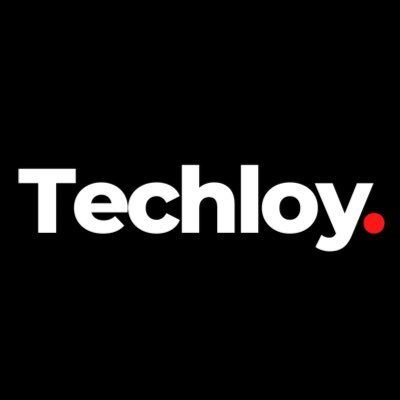The Impact of IoT Connectivity on Industrial Automation
In this article, learn about industrial automation and IoT and their impact on Industry 4.0.

In Industry 4.0, the combination of the Internet of Things (IoT) and automation is transforming the manufacturing and production landscape.
As we traverse toward the fourth industrial revolution, which is defined by the convergence of digital technologies, the Internet of Things (IoT) plays a critical role in coordinating seamless connections between equipment and systems.
In this article, learn about industrial automation and IoT and their impact on Industry 4.0. We will also discuss some challenges in industrial automation.
What is the Internet of Things (IoT)?
The Internet of Things (IoT) is a massive, digitally connected universe of billions of physical items all over the world; "things" that gather and exchange data about how they are used and the environment around them. These items are equipped with internet connectivity, software, sensors, and other hardware, allowing them to communicate and share data with other systems and devices over the internet.
The IoT connectivity extends the power of the internet beyond smartphones and computers to everyday home products such as light bulbs, locks, smart microwaves, wearable fitness gadgets, complex industrial machines, and self-driving automobiles, giving them more analytical and processing skills.
What is Industrial Automation?
Industrial automation is the use of various control systems (computers and information technology) to manage various processes and machines in industries, therefore reducing or replacing human participation. Essentially, it is the use of technology to execute activities that would otherwise need manual labor. Industrial automation is implemented with a variety of technologies. This comprises programmable logic controllers (PLCs), industrial computers, SCADA systems, and, more recently, the Internet of Things.
Industrial Automation and IoT
Industry 4.0 is a shift in basic production principles characterized by the incorporation of smart technologies that enable machines to interact, analyze data, and make autonomous choices. This new phase of industry is centered on the digitization of processes, resulting in networked systems capable of real-time cooperation and flexibility. Automation, a cornerstone of Industry 4.0, is taken to new heights with the introduction of IoT, ushering in a change in the way machines communicate and work.
The Impact of IoT Connectivity on Industrial Automation
IoT connection is a key component of modern industrial automation, allowing for seamless communication between devices, systems, and processes. Here are a few significant effects of IoT connection on industrial automation:
Predictive Maintenance
IoT-enabled sensors monitor the state of machinery in real-time, identifying possible problems before they worsen. This proactive approach to maintenance decreases downtime, increases equipment durability, and lowers total maintenance costs.
Energy Efficiency
IoT connection enables the monitoring and management of energy use across industrial activities. Connected devices give precise energy use data, allowing you to find areas for efficiency improvement. This results in economic savings and a smaller environmental imprint, which supports sustainability goals.
Real-Time Monitoring and Control
IoT connectivity enables real-time monitoring and control of industrial operations. Sensors and linked devices continually gather and send data, offering real-time insights into equipment performance and operating conditions. This allows for fast identification and treatment of faults, reducing downtime and increasing operational efficiency.
Quality Control
Automation and IoT transform the quality of control operations. Sensors that are installed in production equipment constantly check product quality characteristics. Any deviations from the established criteria result in prompt changes or halt in production, assuring consistent, high-quality outputs.
Improved Decision-Making
With a powerful IoT connection, data from several sources may be collected and analyzed to improve decision-making. Advanced analytics and machine learning algorithms can analyze huge volumes of data to identify patterns and trends that can help optimize manufacturing processes, predict maintenance needs, and improve overall efficiency.
Challenges of IoT in Industrial Automation
While the Internet of Things (IoT) provides major benefits to industrial automation, it also raises a number of problems that must be overcome in order for it to be implemented and operated successfully. Here are some of the main challenges:
Data Security and Privacy
Interconnectivity is the sole feature of IoT devices, which means that gathered data is sent from one device to another. This may cause problems for users as their data privacy and security might get compromised. Industrial systems are increasingly vulnerable to hackers. To secure their data, they would need to implement strong security procedures.
Data Overload
An IoT ecosystem has a large number of networked devices that gather and transmit data. The amount of data collected will be enormous, making management difficult. Companies must have strong data management and analysis systems in place to make the most of this information.
Cost and Complexity of Implementation
Implementing IoT in industrial automation may be costly and challenging, especially for small and medium-sized enterprises. It necessitates a large investment in new equipment and, perhaps, employee training. They may even be required to acquire more experienced personnel, which certain companies may find too expensive.
Conclusion
In the age of Industry 4.0, the combination of IoT and automation is transforming the production environment. The connection and data-driven insights made possible by IoT are boosting automation to new heights, promoting smart manufacturing processes, and transforming industries.
As firms traverse the hurdles of adoption, the promise of increased efficiency, lower costs, and unparalleled creativity beckons. Accepting the revolutionary potential of IoT in Industry 4.0 automation is more than a strategic decision; it is a critical step toward creating a smarter, more connected, and more efficient future for industrial processes.






